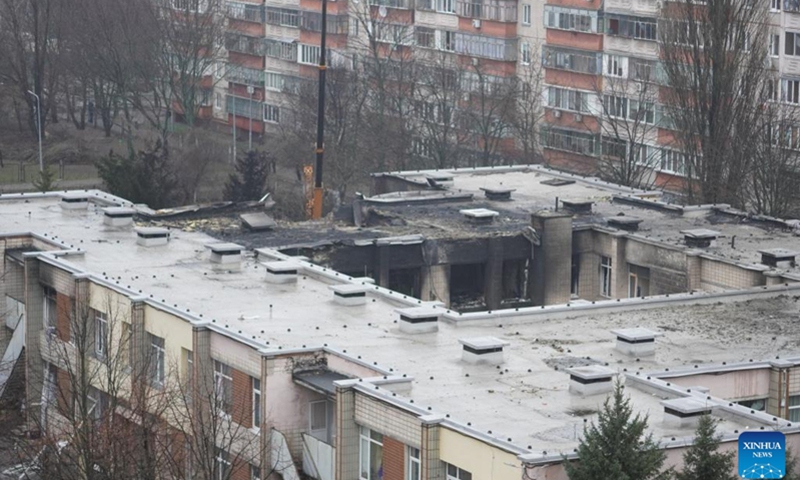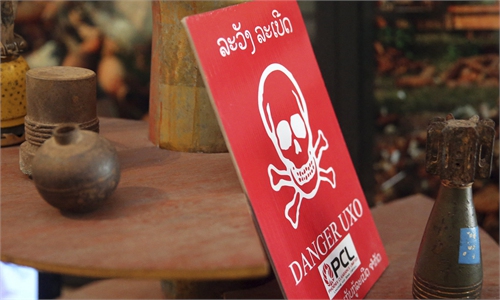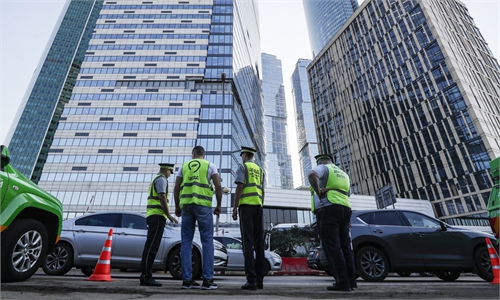Hard to predict the future after one and a half year of stalemate in the Russia-Ukraine conflict

This photo taken on Jan. 18, 2023 shows the crash site of a helicopter in Brovary, a town in the suburbs of Kiev, Ukraine. A helicopter crashed near Kiev on Wednesday morning, killing at least 16 people.(Photo: Xinhua)
On August 24, Russia's special military operation in Ukraine has been ongoing for one and a half year. Despite Ukrainian President Volodymyr Zelensky's promise of a "productive September" on Wednesday, and Kiev's secret discussion of Ukraine's future military strategy with NATO, Ukraine's allies in the West cannot hide their disappointment, dissatisfaction, and frustration over the protracted and stagnant conflict between Russia and Ukraine. They fear being drawn into a new quagmire of war that is becoming another "Afghanistan War."In early June, Ukrainian forces launched a "summer offensive" against Russian forces in eastern and southern Ukraine. Over three months, Ukrainian forces suffered heavy casualties with little to show for it. This campaign, which was originally intended to be launched in the spring, failed to recapture any strategically significant objectives and resulted in the loss of nearly 30 percent of NATO-supplied weapons, with many soldiers either captured or demoralized.
Over the past three months, Ukraine occasionally carried out cross-border raids into Russia, striking deep military targets across Russia by drones but failing to alter the overall military situation. In contrast, Russian forces have clearly adopted a patiently defensive posture with occasional airstrikes, settling in for a protracted war of attrition. They have established three lines of multi-layered defense on the east bank of the Dnipro River to strike and deplete Ukrainian ground forces.
Clearly, Russia has recognized this as an asymmetric war of attrition where its overall strength surpasses that of Ukraine's. The Joe Biden administration of the US had hoped for a proxy war in Ukraine, both to thwart Russia's strategic countermeasures and to eliminate Europe's strategic independence aspirations. Ukraine has now become the "Afghanistan in Europe," and Russia is cautiously avoiding the pitfalls that had led the Soviet Union into a decade-long Afghan quagmire that ultimately hastened its disintegration. At the same time, Russia is using its geographic advantage to try to make the US and NATO taste the bitter fruit of fighting in Afghanistan for 20 years before ultimately having a disgracful retreat.
Although Russia's overall strength cannot compete with that of NATO's, it also has the advantage of winning a war of attrition: a stable and consistent decision-making system, sufficient reserves and production capacity of military equipment, and millions of people motivated by nationalism. Russia also has rich experience in protracted wars and wars of attrition and is good at defensive counterattacks.
Of course, Russia is also continuously targeting strategic targets, infrastructure, and logistical supply chains in Ukraine to undermine its armed resistance. Prolonged bombing has caused an increasingly serious war-weariness atmosphere, and the West camp is showing signs of fatigue toward Ukraine, which they see as a "bottomless pit." German Foreign Minister Annalena Baerbock admitted that the sanctions against Russia are not effective enough.
The US, facing a contradiction between the immediate and long-term interests, is caught in the division of bipartisan competition for the presidency. Other NATO members also have their own calculations. On August 15, the chief of staff to the NATO secretary general, for instance, publicly proposed that "I think that a solution could be for Ukraine to give up territory and get NATO membership in return."
Zelensky's combative tone has clearly cooled down, but he insists on not sacrificing territory for peace. Based on the current situation and the general laws of war, the "Afghanistan War in Europe" will continue until one side wins or both sides are unable to fight anymore.
In November 2022, European Commission President Ursula von der Leyen publicly admitted that 100,000 Ukrainian soldiers were killed during the war. In May of this year, US Democratic presidential candidate Robert Kennedy Jr. claimed that "300,000 Ukrainian military personnel" had died. Ukraine, with a population of 36 million and a land area of 600,000 square kilometers, became the biggest loser as soon as the war started. And if the war continues to be prolonged, the country is likely to lose both its people and land.
The author is the director of the Institute for Studies on the Mediterranean Rim at Zhejiang International Studies University. opinion@globaltimes.com.cn


